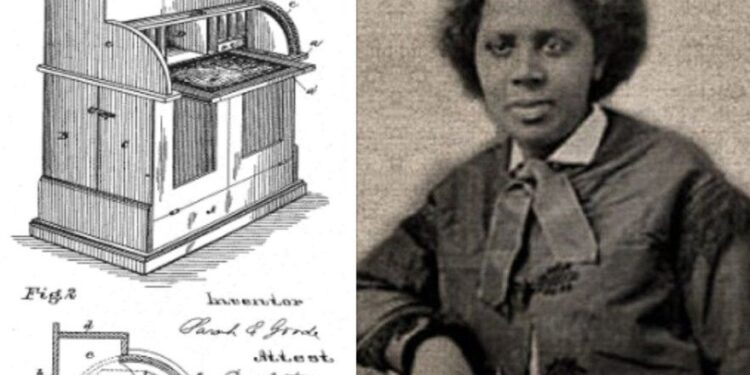Murphy beds and small living options might be the first things that spring to mind when you think of furniture that saves room in today’s contemporary apartments. But Sarah E. Goode, a trailblazing African American inventor and entrepreneur, altered the game with her ingenious invention—the folding cabinet bed—long before such beds were popular.
Sarah was the first woman of African American descent to be granted a U.S. patent in 1885. Her concept wasn’t merely imaginative; it was inspired by a practical need and served as a model for the multipurpose furniture of today. This article explores Sarah E. Goode’s legacy and her innovative folding cabinet bed, which is a veritable work of art in terms of creativity and design.
Who Was Sarah E. Goode?
Sarah E. Goode was born in 1855, shortly before slavery in the United States was abolished. Sarah and her husband, Archibald Goode, operated a furniture company in Chicago after the Civil War. Sarah was already breaking down barriers as a woman entrepreneur in a male-dominated field during the Reconstruction era.
However, her goal was to solve practical issues rather than just sell furniture. Working-class families in cramped urban apartments were among her regular clients. What’s their main grievance? Insufficient room.
The Birth of the Folding Cabinet Bed
Goode devised a novel solution to the problem of claustrophobic living quarters: a bed that could be lowered at night for sleeping and folded into a cabinet during the day to conserve room.
She received U.S. Patent No. 322,177 on July 14, 1885, for her folding cabinet bed design. This clever creation included:
-
A fully functional bed that folded vertically into a roll-top desk-like cabinet.
-
Shelves for storage when the bed was not in use.
-
A dual-purpose design that made it ideal for small spaces.
For working-class families residing in boarding homes and tiny flats, this was revolutionary. It made it possible for people to make the most of their little area without compromising comfort.
A key idea in space-saving furniture design, Goode’s folding cabinet bed helped create the modern Murphy bed.
Why Her Invention Mattered
Let’s not forget the context: in 1885, formal education and business prospects were virtually nonexistent for women, particularly African American women. It was very remarkable that Sarah E. Goode was able to conceive, patent, and market an innovation in addition to running a furniture company.
Her invention made waves because:
-
It addressed a real societal need for affordable space solutions.
-
It empowered women and African Americans by proving innovation wasn’t reserved for the elite.
-
It set a historic precedent as the first patent awarded to an African American woman.
Legacy and Modern Impact
Today, space-saving furniture is a booming industry, especially in urban areas with rising rent and shrinking living spaces. Concepts like modular sofas, convertible desks, and Murphy beds can all trace part of their origin story back to Goode’s folding cabinet bed.
Sarah E. Goode’s influence lives on in:
-
Tiny home and micro-apartment designs that rely on compact furniture.
-
Educational materials and museums that celebrate Black inventors and women pioneers.
-
Continued innovation in multifunctional furniture for sustainable living.
Her invention remains a timeless example of problem-solving through smart design, and she continues to inspire generations of inventors, entrepreneurs, and thinkers.











